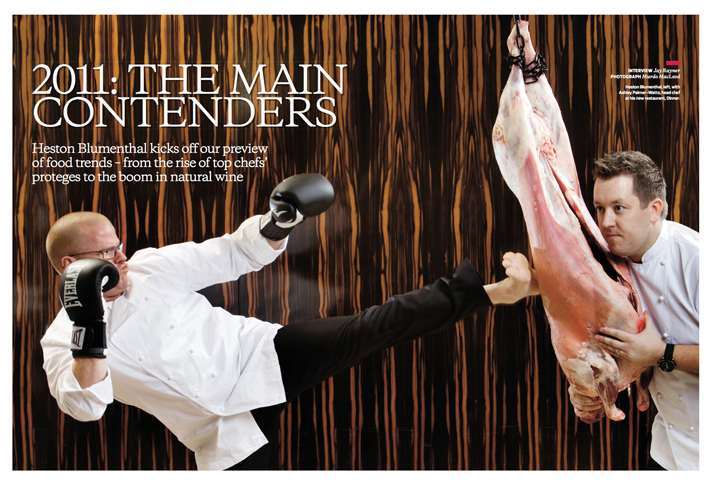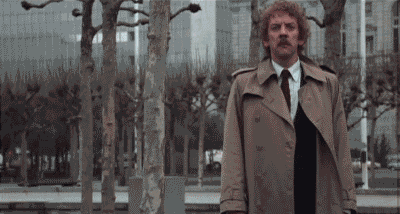Millennials come in for a lot of flak, what with being incoherently blamed for misfortunes imposed by take-the-money-and-run capitalist boomers etc, but if you ask me our one unforgivable fault is a tendency to get cute. Thus we cutely spend our time debating whether Emma Watson should appear on our ten pound notes alongside the motto illegitimi non carborundum, then in May when the Tories get in we’re all like :’(
One of the many minute things to grind my minute gears in recent weeks has been this bit of aw-shucksery from the Guardian:
The centrepiece of a roast is usually a giant hunk of meat dripping in its own juices. A monstrous piece of animal that you now have full dominion over. You’re setting an example for the rest of the world. You are all-powerful now, and all the creatures of the Earth must tremble before you, lest you cook them as well.
I know, it’s meant to be tongue in cheek. But it’s not really ironic, because it does really suggest that eating meat makes you feel powerful, and, recognising the idiocy of that, doesn’t question it, but treats this grotesque thought process as an adorkable part of a gratifying culinary experience.
 |
| Courtesy of the Observer |
The violence of this attitude might ring a bell with readers of Carol J Adams’s The Sexual Politics of Meat, along with a sicklier grace note. Meat is objectification: something that’s been dominated and extracted from consciousness or agency, the object having more value because it once had consciousness and agency which was taken from it. In a nutshell (which is how a hipster would probably serve it), meat represents much of what is despicable and odious in masculinism, but also, because it’s food, has a feminised and domestic facet that can appeal to ‘new men’, who tie their big beards behind their pinnies and experiment with ways of making their base sense of entitlement look most palatable. Not that women don’t do this: I think that for women too interactions with meat can combine masculine and feminine, and sexual, motifs in a particularly self-indulgent way. Possibly the most hateful example of this is Cleaving: A Story of Marriage, Meat and Obsession by Julie Powell, a journey of unnecessary self-discovery via the mutilation of corpses.
 |
| 3 victors in a 'trying to look like a burger' competition |
Artisanal butchery is not down to earth, it’s a retrograde affectation. Think of the lumbersexual, of the Hugh Fearnley Whittingstall on his photogenic smallholding, of TV chefs proving their authenticity by executing lambs live on camera. “It’s the natural order, people have always eaten meat,” says the straw man. This aspect of the meat conversation is bullshit: people have always been murderers, rapists and genocidal despoilers, but that doesn’t make it ok. And since it’s increasingly obvious not just that we don’t need to but that we mustn’t indulge in this killing, the last thing we should be doing is fetishizing it, allowing it to seem naughty but nice, or even (gawd help us) sexy.
As a final mention, just because I think it’s worth saying, animal issues are not isolated from other liberationist movements. As Adams points out, violence inflicted on animals is violence that will, in some form, be visited on oppressed humans; it belongs to the same paradigm of objectification and entitlement. First they came for the pigs, but I was not a pig so I said nothing. Then they came for me ...

